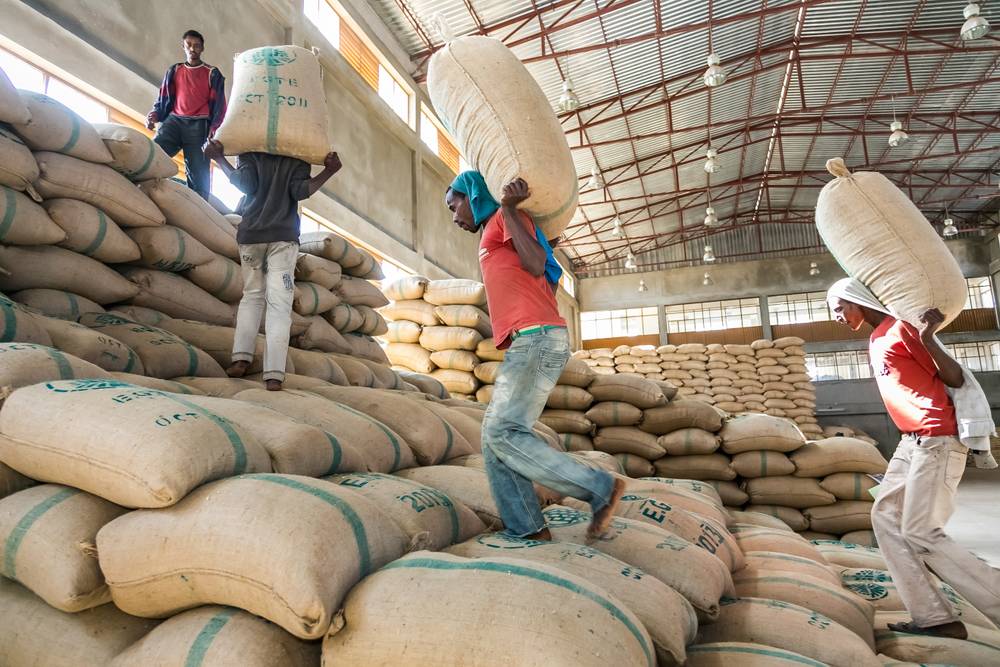 Last updated: December 17th, 2019 5:09 PM
Last updated: December 17th, 2019 5:09 PM
Essential Commodities Act, 1980
The Prevention of Black-Marketing and Maintenance of Supplies of Essential Commodities Act (PMSECA), 1980 seeks to address black-marketing and hoarding. The act can be used by central, state and Union Territories (UT) to detain individuals or groups involved in unethical trade practices. The Act aims to identify and regulate the unrecorded and informal economy.Overview
Hoarding is considered as an activity that involves purchasing a large number of commodities and selling it when there is a lack of stock. Such activity is often associated with monopolies and the creation of a false market shortage. The act of involving hoarding, especially with essential commodities, can lead to legal consequences. Like hoarding, black marketing involves illegal business transactions, and they are prohibited by the Government of India. Similar restrictions are placed by other countries under their jurisdictions to prevent activities like human trafficking, drug trade, illegal money trade, etc.Scope
The Act was enacted on February 12th, 1980, and there are provisions and punishments for persons who commit black marketing or hoarding.- The Act empowers the state government and central government or an official representative to detain individuals or groups committing black marketing or hoarding.
- The Act empowers district magistrates as well as the commissioner of police to take legal action against offenders.
- The Act does not extend to the state of Jammu Kashmir
Definition of Essential Commodities
- Petroleum and all petroleum products including kerosene, diesel, naptha, solvents and other similar product
- Food products including all edible oils, seeds, pulses, rice, vanaspati, sugar, rice paddy and related items
- Jute and textiles
- Drugs (Prices controlled by the DPCO)
- Fertilisers (Controlled by the Fertilizer Control Order)
Changes to Essential Commodities Act, 1955
The Department of Consumer (DCA) Affairs brought in several changes to the Essential Commodities (EC) Act in 2014. The revisions to the EC Act have created a subsequent impact to enforce the act with authority. Hoarding and black marketing have been enforced as a non-bailable offence. Abetting the offences under the Act leads to a fine, imprisonment or both. The act can also detain any business licenses indefinitely leading to penalty or penalisation as defined by the court of law.Implementation of the Act
Implementation of the act by Government of India:- Controlling the price at which an essential commodity may be bought or sold
- Regulating licenses, permits and manufacturing
- Prohibiting withholding of sale of any essential commodities (hoarding)
- Prohibiting under-cultivation of land used for growing food crops
Legal Requirements to Control Black Marketing and Hoarding
The Government of India implemented the following changes to reduce instances of black marketing and hoarding:- Businesses that deal with non-perishable essential commodities need to be licensed and registered.
- All dealers and traders need to obtain a license if their turnover exceeds the prescribed quantity.
Punishment for Violating the Act
Offenders will be put on trial under the Essential Commodities Act, 1955 (10 of 1955) or any other as mentioned for the wrongful act. The trail shall be executed by a special court or a special designated court, and all offences under the Act are non-bailable. Any person or organisation found guilty of violating the act will lead to the detention of the business following with a jail term for the individual.Absconding or Avoiding the Order
Any individual absconding or avoiding the order should be reported to the Metropolitan or Judicial magistrate. The punishment shall be implemented under 82, 83, 84 and 85 of the Code of Criminal Procedure. If proven guilty after the examination of records and books, a jail term up to a year will be handed out for minor offences. For major offences, the jail term can be extended up to seven years with fine or both. Click here for complete documentation, TDS return filing and USA company registrationPopular Post

In the digital age, the convenience of accessing important documents online has become a necessity...

The Atalji Janasnehi Kendra Project that has been launched by the Government of Karnataka...

The Indian Divorce Act governs divorce among the Christian couples in India. Divorce...

When an individual has more than a single PAN card, it may lead to that person being heavily penalised, or worse,...

Employees Provident Fund (PF) is social security and savings scheme for employee in India. Employers engaged...


